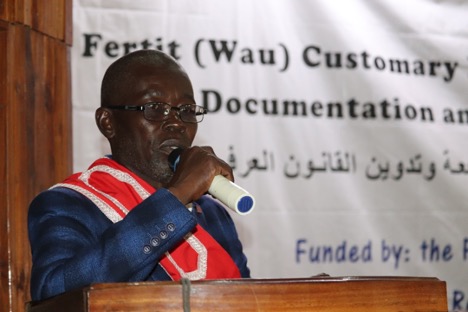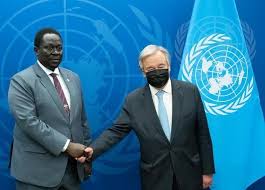
IOM Begins Chiefs, Youth Training on Customary Law In Bahr el Ghazal

The international organization for Migration (IOM) has commenced a five-day training of the community chiefs and youths of Western Bahr el Ghazal State about customary law.
The training dubbed “review and training of traditional chiefs work shop” facilitated by the IOM’s community action for peaceful resolution of housing, land and property project started in Wau the capital of Western Bahr el Ghazal State on Thursday.
The State Minister for Parliamentary Affairs Anthony Charles Nbrende, who opened the workshop on behalf of the State Minister for Local Government says the introduction of the customary law is crucial in transforming the communities under the law.
“This way, we can maintain peace and unity within the different communities in Western Bahr el Ghazal,”he says.
Meanwhile, Wau County Paramount Chief William Kamilio who also graced this occasion says that, the workshop is the first of its kind due to the fact that it has brought together seven tribes in this state who convened to discuss customary matters.
“We have been hearing about the reorganization of other tribes in South Sudan and today is our chance as communities in Wau County. Within these five days, let’s produce good laws for our young generations to come,” said chief Kamilio.
In the same vein, Angelo Selberto a youth who is participating in this training expressed optimism that, at the end of the five-day workshop, Wau County communities will be empowered to develop their own customary principles which will guide the governance of their communities.
“When it comes to customary practices, youth suffers but today our elders have come to chart a way forward and am happy that finally we will produce good customary principles in this county,” he added.
The head of IOM Wau field office Riad Marrow, revealed that, one of their roles as IOM is to facilitate the documentation of customary laws and practices for the betterment of communities in South Sudan
“This is one of the ways of ensuring the peaceful functioning of the community which could contribute to the wider peace in South Sudan,” he added.





































